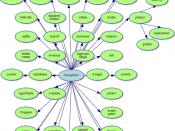One of the few case studies of undocumented immigrants available, this perceptive anthropological study improves a group of people too often abridged to statistics and typecast. The suffering of Hispanic relocation is expressed in the immigrants' own accent while the author's voice elevates questions about authority, typecast, settlement, and assimilation into American society.
Immigrants are torn by contradictory social and intellectual demands, while facing the confront of entry into a strange intimidating environment. The migratory progression, for whatever the reason, seems to improve the sense of harmony among those who migrate, who are often united by ties of affiliation, community and customs, as well as class. Symbols of ethnicity, such as language and religious behavior serve as reminders of their origin to the migrants themselves, while at the same time marking these people as outsiders in their new locale. Some migrants make a conscious decision to abandon an old unsatisfactory way of life for what they believe will be paradise on earth, land of the free, the place to find the American dream, never thinking about why or what the leave behind.
For others, migration leads to a new existence, one that incorporates two or more ways of doing things, and a declining sense of national loyalty.
Many workers are reluctant to seek health care for fear of being deported, losing their jobs, losing money and many don't even know where to seek help since they rarely leave campsites. Immigrants try not to draw attention to their presence and generally do not attend church services, school or go to the movies (Chavez 63-82). Many only stay immigrants, come to the United States and return to his/her origin either on their own or through deportation. Few actually have the chance of becoming settlers and staying in the US for years...


